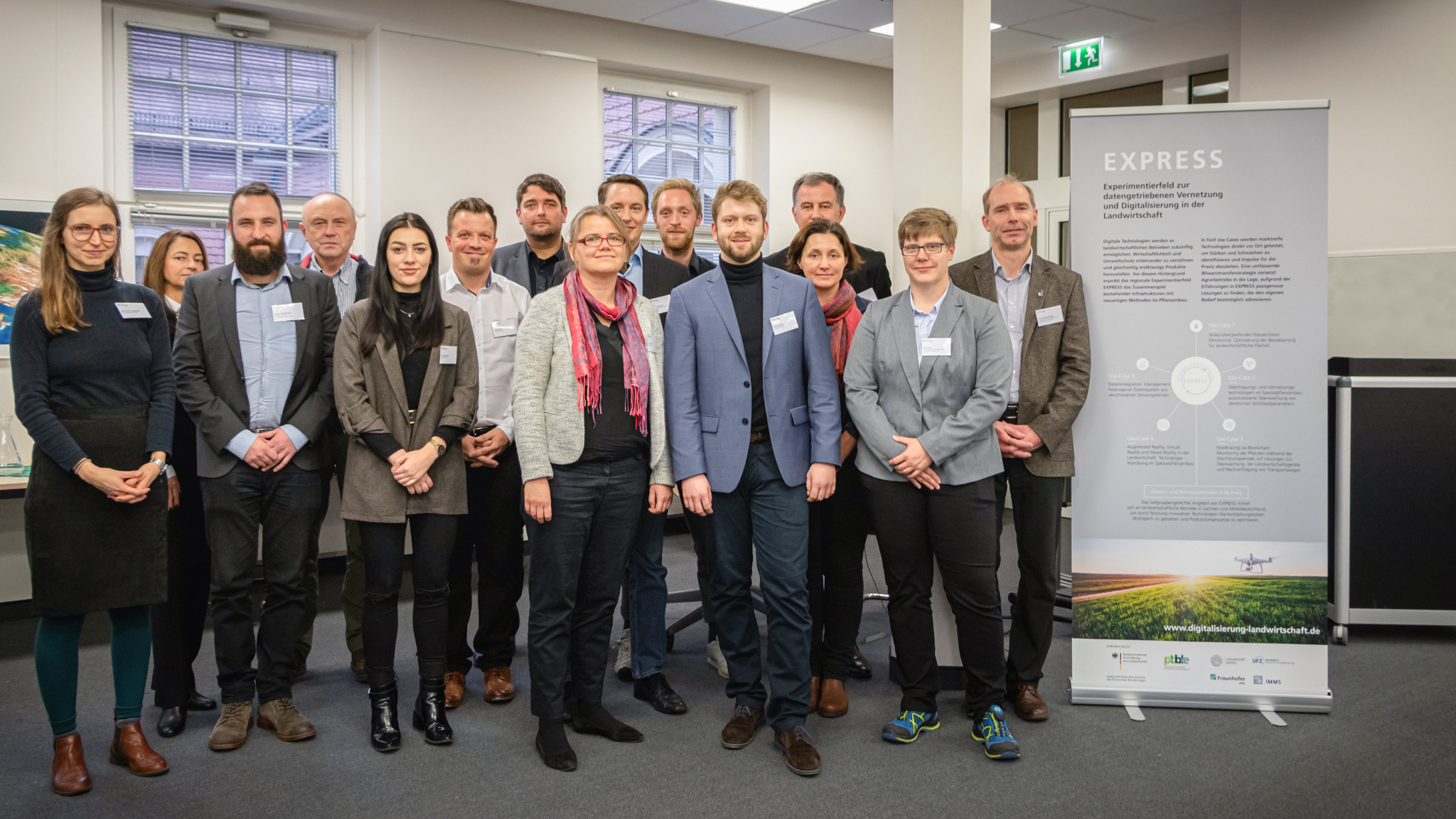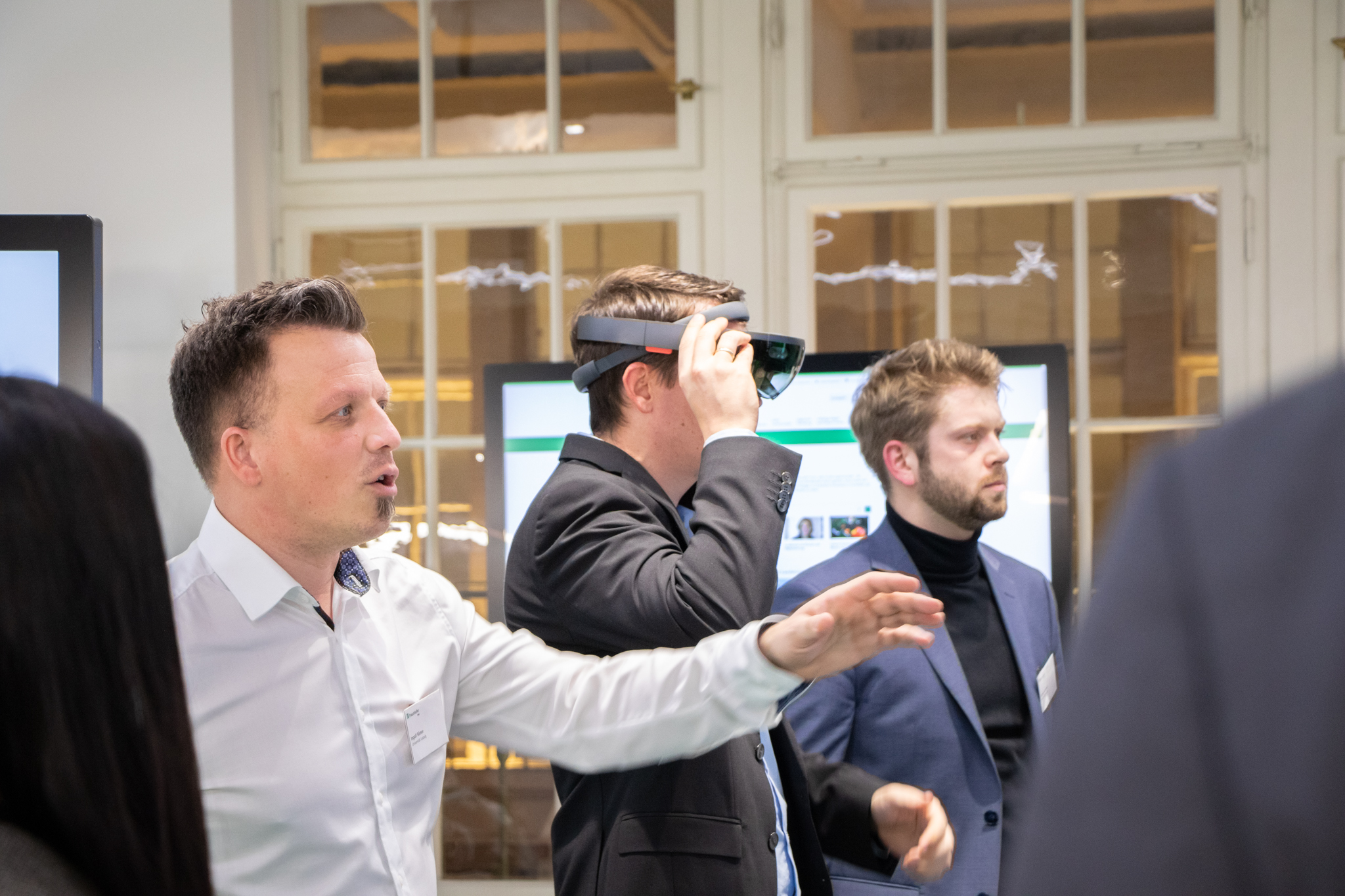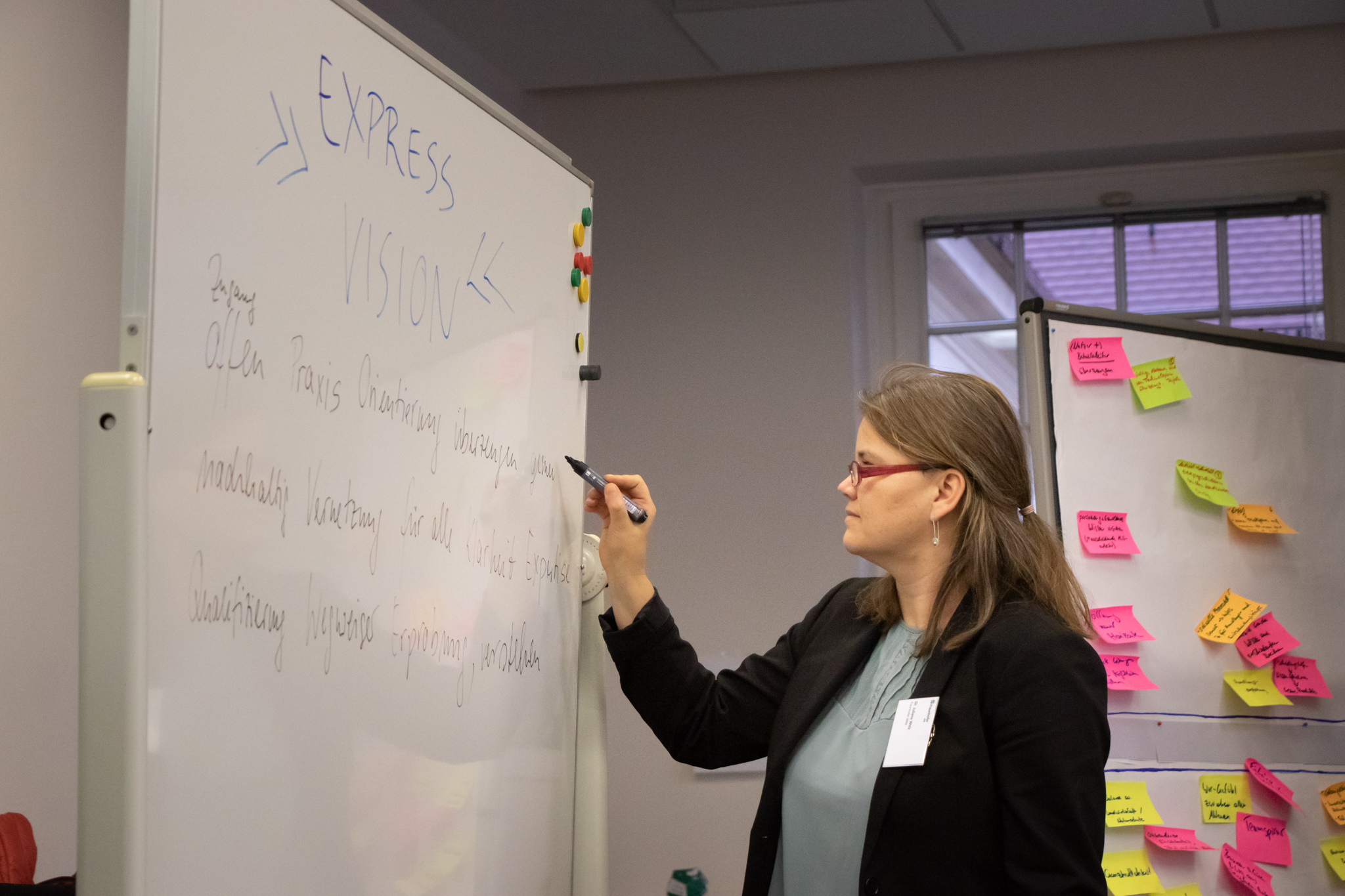EXPRESS: Digital field of experimentation starts with Kick-Off and works towards the vision for the digitization of agriculture
The EXPRESS joint project, which began on 9/1/2019, was awarded funding on 10/17/2019 in the field of data-driven networking and digitization in agriculture. This project tests digital technologies in crop production to determine stimuli for farming practices. The official kick-off took place on November 26th and was followed by a workshop on work at Fraunhofer IMW in Leipzig.



The introduction of state of the art methods for digital networking in crop production produces high expectations. The use of drones, modern sensors and sophisticated systems for data management in agriculture should contribute to the improvement of both the economic viability and environmental concienciousness of the projects. With the kick-off, the joint project EXPRESS for the testing of digital technologies in crop production, integrated the infrastructures of agricultural holdings in Saxony and Central Germany.
Representatives of all the participating research institutes met for two intensive working sessions at the Fraunhofer Center for International Management and Knowledge Economy IMW in Leipzig. In several presentations, the project partners presented goals and initial findings. In addition to the Institute for Business Informatics at the University of Leipzig, the Helmholtz Centre for Environmental Research UFZ, the Fraunhofer IMW and the IMMS Institute for Microelectronics and Mechatronics Systems Non-Profit GmbH, took part in EXPRESS. From the operational perspective, Jan Kalbitz (CEO) and Hans-Dieter Bierig (fruit cultivation consultant) from Obstland Dürrweitzschen AG reported on concrete points which this technology could address on farms.
Recognizing challenges and exploiting potentials: the use of drones, VR glasses and sensors
Afterwards, Ingolf Römer and Martin Schieck from Leipzig University, Hannes Mollenhauer from the Helmholtz Centre for Environmental Research UFZ and Dr. Silvia Krug from IMMS GmbH provided an overview of the current market readiness of various technologies. On the premises of the Institute for Business Informatics at the University of Leipzig's so-called, 'Logistics Living Lab,' the project team was able to give an impression of the possibilities offered by the use of drones, virtual reality and sensor networks already available today.
However, in subsequent discussions between scientists, as well as experts from the fields of plant and specialized crop production, several challenges were identified. Some of the experts indicated that the aforementioned methods, which are based on the evaluation of very large amounts of data, make transmission impossible to guarantee considering current mobile phone standards. The use of drones not only requires a technological knowhow, but also must be completed within the context of existing regulations, such as current no-fly zones.
Project partners develop a common vision
On November 27th, the project partners met again at Fraunhofer IMW to create a common vision regarding the field of experimentation in digital agriculture. After a keynote speech by Dr. Juliane Welz, project manager at Fraunhofer IMW, the participants identified opportunities and challenges, then summarized the findings in a final vision which will shape the further course of the project and convey an individual project identity. Perspectives on agriculture were offered by Dr. Georg Prinz zur Lippe of the Schloss Proschwitz winery in Meissen.
The visit to farms a few weeks earlier, enabled the EXPRESS project team to take its first steps in deducing challenges for the application of digital agricultural technology. The project partners have agreed on the next steps and provided concrete solutions. At the end of the day, Fraunhofer IMW was responsible for the implementation of a comprehensive knowledge transfer strategy, thereby enabaling farmers to take part in the results provided by EXPRESS and to be inspired to make changes in their own opperations.
Background
The EXPRESS project is funded by the Federal Ministry of Food and Agriculture (BMEL) on the basis of a resolution of the German Bundestag. Project sponsorship is carried out through the Federal Institute for Agriculture and Food (BLE) as part of the promotion of digitization in agriculture with the identification number FKZ 28DE102C18. EXPRESS was carried out by a research network established by the Institute for business informatics at Leipzig University. The Helmholtz Centre for Environmental Research UFZ, the Fraunhofer Center for International Management IMW and the IMMS Institute for Microelectronics and Mechatronics Systems non-profit GmbH have been whole-heartedly involved.
